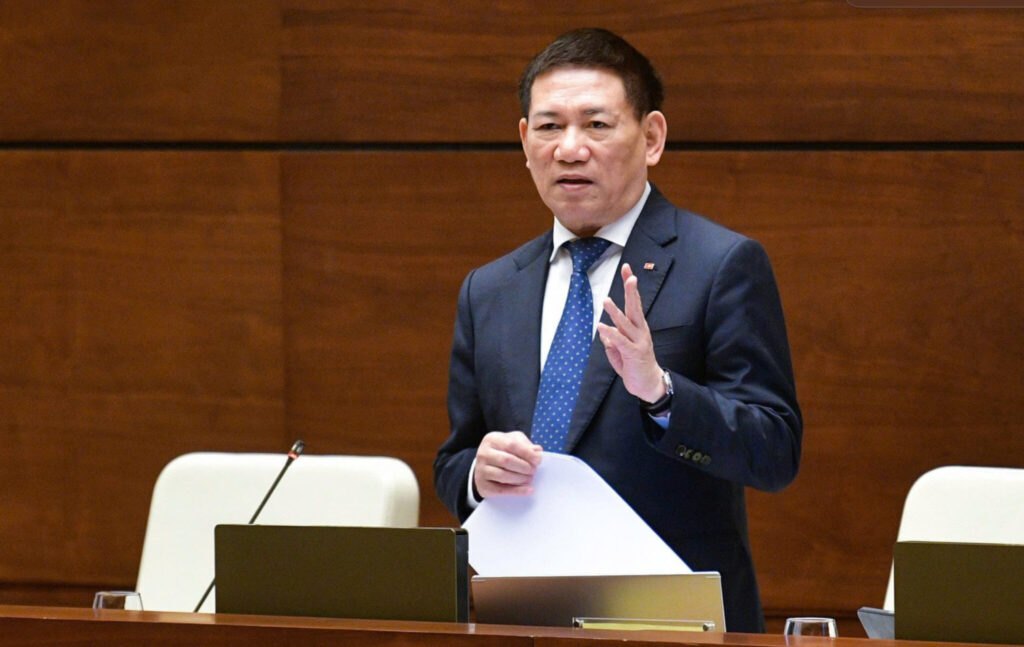“If Artificial Intelligence (AI) represents a race of investment costs and superior technological platforms accessible only to economic powerhouses, blockchain is considered an ‘equal opportunity’ for all nations. We are on the brink of that opportunity as the National Blockchain Strategy has officially been issued.”
On October 22, 2024, the Prime Minister issued Decision No. 1236/QĐ/TTg, announcing the National Strategy for the Application and Development of Blockchain Technology through 2025, with a vision to 2030. This strategy aims to help Vietnam become a regional leader and attain international recognition in the blockchain industry by 2030.
This marks a significant step forward, demonstrating the Government’s strong commitment and clear direction for the blockchain sector’s development. The strategy also shapes a future legal framework, fostering a safe and transparent environment for businesses and individuals, encouraging innovation, enhancing Vietnam’s competitive capacity, and rapidly integrating the country into global technological trends.
The National Assembly is reviewing the draft Digital Technology Industry Law alongside the National Blockchain Strategy, which is expected to be approved by May 2025. These documents will provide a robust legal foundation to support the growth of the nascent yet up-and-coming blockchain industry.

An “Equal Opportunity” for All Economies
According to Chainalysis’s 2024 report, Vietnam currently has over 20 million citizens owning digital assets, accounting for 20% of the population and ranking fifth globally in digital asset adoption—behind the U.S. (fourth place) and three other countries, namely India, Nigeria, and Indonesia. Another Chainalysis report revealed that the cryptocurrency inflow to Vietnam last year reached $120 billion, equivalent to more than one-quarter of the nation’s GDP.
Additionally, according to the Ministry of Science and Technology, one out of Vietnam’s four tech unicorns (with valuations exceeding $1 billion) is Sky Mavis, a Web3 startup.
Interestingly, among the top 20 countries with the highest digital asset adoption rates globally, the majority are developing nations, including India, Nigeria, Indonesia, Vietnam, Ukraine, the Philippines, etc. This suggests that economic development levels, technical infrastructure, or regulatory frameworks do not constitute significant barriers to promoting blockchain adoption.
In other words, blockchain can be seen as an “equal opportunity” for all economies, particularly for developing nations like Vietnam, which must quickly seize this opportunity. This could be a rare chance for decades to come, given that most previous technological races—from artificial intelligence (AI), and semiconductor technology, to electric vehicles—required immense investment costs and advanced technological platforms that developing nations like Vietnam struggle to compete with.
For businesses, the National Blockchain Strategy opens numerous critical opportunities for robust growth and staying ahead in the blockchain sector. Among them, the most crucial factor is the creation of a favorable and clear legal environment, allowing businesses to confidently invest in blockchain solutions without concerns about regulatory compliance risks.
Second, the Government’s encouragement of blockchain applications in sectors such as finance, logistics, agriculture, and data management generates significant demand from state agencies and domestic enterprises. This helps expand the blockchain application market, providing service providers with additional room for growth and strong development.
Third, the National Blockchain Strategy offers an excellent opportunity for businesses to participate in controlled testing mechanisms (sandboxes), allowing them to experiment with blockchain technology in a safe environment before deploying it in real-world applications, optimizing resources and minimizing risks.
Fourth, the Government’s focus on developing “Make in Vietnam” blockchain platforms creates favorable conditions for domestic enterprises to thrive, enhancing their competitiveness not only within the country but also equipping them to venture into international markets.
Moreover, the National Blockchain Strategy emphasizes training and developing high-quality human resources by integrating blockchain into university curricula and relevant educational programs, as well as promoting the development of Massive Open Online Courses (MOOCs) on blockchain. With a well-trained workforce, Vietnam has a solid foundation to enable businesses to cultivate a team of experts with deep knowledge of blockchain, positioning them to lead in emerging technology trends.

As the professional organization directly tasked with implementing the National Blockchain Strategy, the Vietnam Blockchain Association (VBA) has initiated various activities to support businesses and individuals, such as popularizing blockchain and AI through seminars, conferences, direct and online training, as well as consulting and supporting the development of blockchain applications that align with market demands and legal regulations.
Notably, VBA and its member organization, the Academy of Blockchain and Artificial Intelligence Innovation (ABAII), have launched MasterTeck, the first MOOC platform aligned with the National Blockchain Strategy to help realize its objectives.
“In the National Blockchain Strategy, alongside ministries and sectors, the Vietnam Blockchain Association and other professional associations are tasked with: Developing ‘Make in Vietnam’ blockchain platforms; building operational mechanisms for blockchain networks on Vietnam’s Blockchain Infrastructure; and mobilizing digital technology enterprises in Vietnam to create blockchain platforms, promote information sharing, and enhance competitiveness against foreign firms.”
Challenges and Expectations for Vietnam’s Blockchain Industry
Promoting widespread blockchain adoption in Vietnam promises numerous benefits, including expanding the blockchain technology ecosystem and developing new business models in crucial areas such as finance, logistics, agriculture, and national data management. These achievements will provide a strong impetus for the sustainable development of Vietnam’s blockchain industry, turning it into a competitive advantage on the global stage.
However, this breakthrough also brings significant challenges and complex problems that need to be addressed concurrently, such as perfecting the legal system, addressing a shortage of high-quality human resources, shifting perceptions and traditional business models, competing with foreign enterprises, and investing in infrastructure and cybersecurity.
Although the National Blockchain Strategy lays the groundwork for a legal framework, its implementation requires close coordination among multiple ministries, potentially causing delays in regulation issuance and posing difficulties for businesses and investors in the early stages.

Technologically, blockchain requires advanced expertise, yet Vietnam still faces a shortage of highly skilled professionals. Public perception, understanding, and acceptance of blockchain remain inconsistent. Therefore, training and developing human resources, changing public awareness, and transforming business processes and approaches are long-term challenges. Only by building a high-quality workforce and modern technological infrastructure can Vietnam compete with international enterprises on its home turf.
Additionally, blockchain, as a complex technology, demands robust security measures to mitigate risks like cyberattacks and fraud. To ensure the safe implementation of blockchain on a large scale, businesses must invest in security solutions, risk management, and stability assurance—posing significant challenges.
Despite these challenges, with strong determination from the Government, a clear strategic roadmap, and commitments from stakeholders, these obstacles will gradually be overcome, allowing blockchain to be widely applied in key areas such as finance, logistics, healthcare, education, and public administration.
In particular, Vietnam may soon develop a comprehensive and synchronized blockchain ecosystem built on high-quality “Make in Vietnam” platforms. This ecosystem will enable businesses, research organizations, and regulatory agencies to collaborate closely, fostering innovation and creating a positive environment for cooperation. These efforts will position Vietnam as a global hub for blockchain technology, enhancing national competitiveness and driving strong economic growth in the digital era.
